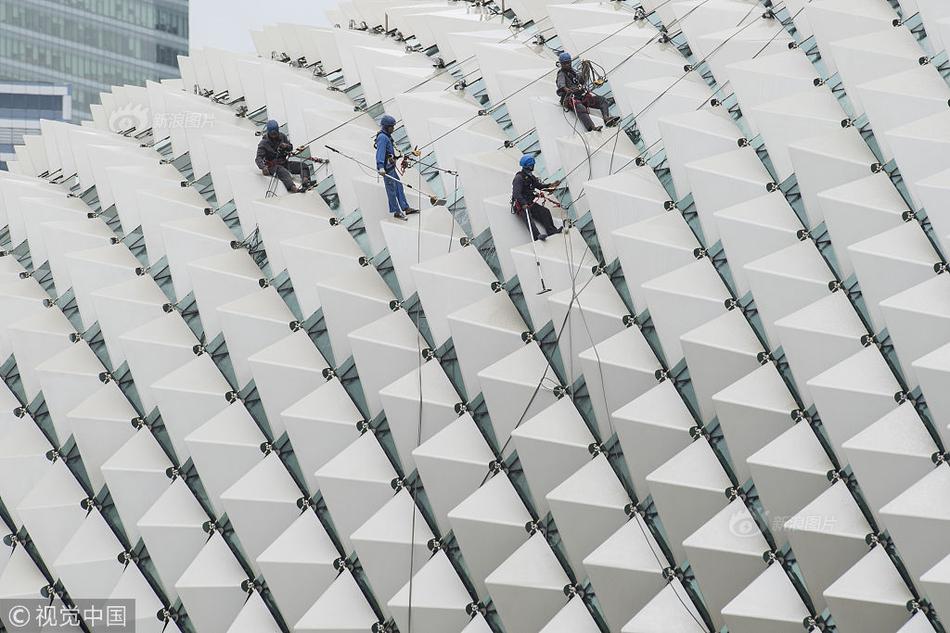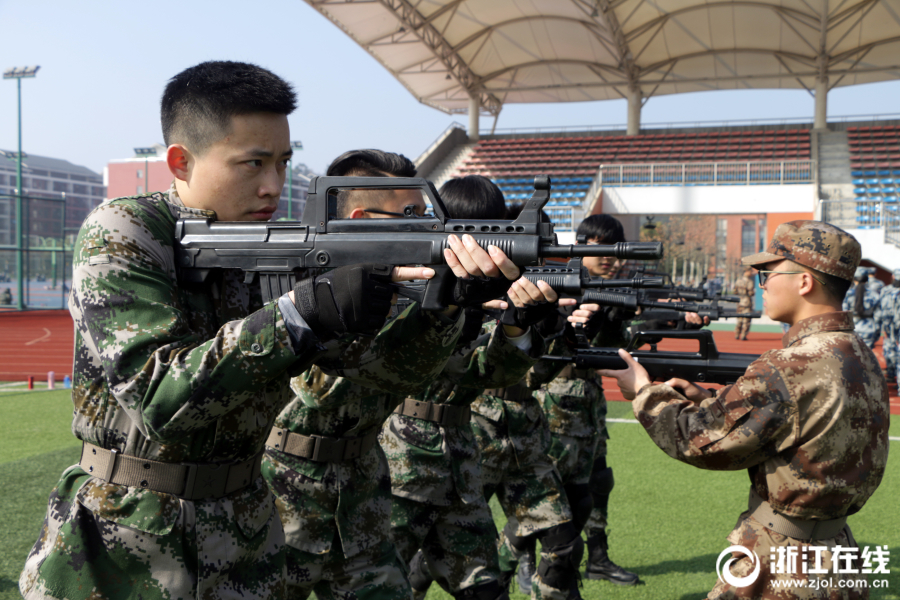
1. The operating system has five functions: processor management: mainly controls and manages the work of the CPU. Storage management: mainly allocate and manage memory. Device management: mainly manage basic input and output devices. File management: responsible for the organization, storage, operation and protection of computer files.
2. The functions of the computer operating system include: processor management, memory management, device management, file management, job management and other functional modules. Processor management. The most basic function of processor management is to handle interrupt events. The processor can only detect interrupt events and generate interrupts and cannot process them.
3. The main function of the computer operating system is process management, and its work is mainly process adjustment.Degree, in the case of a single user and a single task, the processor is only monopolized by one user's task, and the process management work is very simple.
4. I) Processor management The most basic function of processor management is to handle interrupt events. The processor can only detect interrupt events and generate interrupts, and cannot handle these interrupt events. After configuring the operating system, all types of events can be handled. Another function of processor management is processor scheduling.
5. The main functions of the operating system are process and processor management, job management, storage management, device management and file management, as follows: process and processor management. Because the execution of the program must rely on the processor, only one program flow can be processed and executed at any time. Homework management.
6. Five management functions of the operating system: job management: including tasks, interface management, human-computer interaction, graphical interface, voice control and virtual reality, etc. File management: also known as information management. Storage management: The essence is the management of storage "space", which mainly refers to the management of the main memory.
1. The functions of the computer operating system include: processor management, memory management, device management, file management, job management and other functional modules. Processor management. The most basic function of processor management is to handle interrupt events. The processor can only detect interrupt events and generate interrupts and cannot process them.
2. The characteristics of the batch processing operating system are: a. Users use computers offline.After the user submits the homework, he no longer deals with the computer until he gets the result. The task submission method can be directly submitted to the management operator of the computing center, or it can be submitted through the remote communication line.
3. The operating system has five functions: processor management: mainly control and manage the work of the CPU. Storage management: mainly allocate and manage memory. Device management: mainly manage basic input and output devices. File management: responsible for the organization, storage, operation and protection of computer files.
1. The five major functions of the operating system are processor management, memory management, device management, file management and job management.Processor management The most basic function of processor management is to process interrupt events. After configuring the operating system, various events can be processed.
2. Five management functions of the operating system: job management: including tasks, interface management, human-computer interaction, graphical interface, voice control and virtual reality, etc. File management: also known as information management. Storage management: The essence is the management of storage "space", which mainly refers to the management of the main memory.
3. The operating system has five functions: processor management: mainly control and manage the work of the CPU. Storage management: mainly carry out memory allocation and management device management: mainly manage basic input and output device file management: responsible for the organization, storage, operation and protection of computer files, etc.

[Answer]: The operating system is responsible for managing all the resources of the computer system and scheduling the use of these resources.
Function: roughly including 5 aspects of pipeFunctions: process and processor management, operation management, storage management, equipment management, file management.
The role of the operating system Process management, also known as processor management, is mainly tasked to reasonably allocate the time of the processor and effectively manage the operation of the processor. Memory management Because multiple programs share memory resources, the main task of memory management is to allocate, protect and expand memory.
The five major functions of the operating system are: processor management, memory management, device management, file management and job management. Processor management: The most basic function of processor management is to handle interrupt events. The processor can only detect interrupt events and generate interrupts and cannot process them.
Five management functions of the operating system: Job management: including tasks, interface management, human-computer interaction, graphical interface, voice control and virtual reality, etc. File management: also known as information management. Storage management: The essence is the management of storage "space", which mainly refers to the management of the main memory.
File management refers to the management of information resources by the operating system. In the operating system, part of the management information responsible for access is called the file system. A file is an ordered collection of logically complete sets of relevant information, and each collection has a file name. File management supports the storage, retrieval and modification of files, as well as the protection of files.
1. The reason why the computer can make it convenient for usersThe use lies in the scheduling and management of the entire computer system (software, hardware and various resources) of the operating system. The operating system is the core of the whole computer system. It provides an interface for users and various application software to use the computer.
2. The operating system refers to the system software in the computer system that is responsible for supporting the running environment of the application and the user's operating environment. It has the functions of directly supervising hardware, managing various computer resources and providing application-oriented services.
3. The main function of the computer operating system is process management, which is mainly process scheduling. In the case of a single user and a single task, the processor is only monopolized by one user's task. The work of process management is very simple.
4. Operating system definitionOperating System (OS) is a program collection that controls and manages computer software and hardware resources, and organizes multiple users to share multiple resources in the most reasonable and effective way. Any other software must be run with the support of the operating system.
5. The operating system has five functions: processor management: mainly controls and manages the work of the CPU. Storage management: mainly allocate and manage memory. Device management: mainly manage basic input and output devices. File management: responsible for the organization, storage, operation and protection of computer files.
6. The main functions of the operating system are: control and manage computer hardware resources: the operating system controls and manages computer hardware resources, such as memory, disk, processor, etc., in order to allocate and use these resources most effectively.
The main function of the computer operating system is process management, and its work is mainly process scheduling. In the case of a single user and a single task, the processor is only exclusive to one task of one user, and the work of process management is very simple.
The functions of the computer operating system include: processor management, memory management, device management, file management, job management and other functional modules. Processor management. The most basic function of processor management is to handle interrupt events. The processor can only detect interrupt events and generate interrupts and cannot process them.
The characteristics of the batch processing operating system are: a. Users use computers offline. After the user submits the homework, he no longer deals with the computer until he gets the result.The task submission method can be directly submitted to the management operator of the computing center, or it can be submitted through the remote communication line.
Casino Plus GCash login-APP, download it now, new users will receive a novice gift pack.
1. The operating system has five functions: processor management: mainly controls and manages the work of the CPU. Storage management: mainly allocate and manage memory. Device management: mainly manage basic input and output devices. File management: responsible for the organization, storage, operation and protection of computer files.
2. The functions of the computer operating system include: processor management, memory management, device management, file management, job management and other functional modules. Processor management. The most basic function of processor management is to handle interrupt events. The processor can only detect interrupt events and generate interrupts and cannot process them.
3. The main function of the computer operating system is process management, and its work is mainly process adjustment.Degree, in the case of a single user and a single task, the processor is only monopolized by one user's task, and the process management work is very simple.
4. I) Processor management The most basic function of processor management is to handle interrupt events. The processor can only detect interrupt events and generate interrupts, and cannot handle these interrupt events. After configuring the operating system, all types of events can be handled. Another function of processor management is processor scheduling.
5. The main functions of the operating system are process and processor management, job management, storage management, device management and file management, as follows: process and processor management. Because the execution of the program must rely on the processor, only one program flow can be processed and executed at any time. Homework management.
6. Five management functions of the operating system: job management: including tasks, interface management, human-computer interaction, graphical interface, voice control and virtual reality, etc. File management: also known as information management. Storage management: The essence is the management of storage "space", which mainly refers to the management of the main memory.
1. The functions of the computer operating system include: processor management, memory management, device management, file management, job management and other functional modules. Processor management. The most basic function of processor management is to handle interrupt events. The processor can only detect interrupt events and generate interrupts and cannot process them.
2. The characteristics of the batch processing operating system are: a. Users use computers offline.After the user submits the homework, he no longer deals with the computer until he gets the result. The task submission method can be directly submitted to the management operator of the computing center, or it can be submitted through the remote communication line.
3. The operating system has five functions: processor management: mainly control and manage the work of the CPU. Storage management: mainly allocate and manage memory. Device management: mainly manage basic input and output devices. File management: responsible for the organization, storage, operation and protection of computer files.
1. The five major functions of the operating system are processor management, memory management, device management, file management and job management.Processor management The most basic function of processor management is to process interrupt events. After configuring the operating system, various events can be processed.
2. Five management functions of the operating system: job management: including tasks, interface management, human-computer interaction, graphical interface, voice control and virtual reality, etc. File management: also known as information management. Storage management: The essence is the management of storage "space", which mainly refers to the management of the main memory.
3. The operating system has five functions: processor management: mainly control and manage the work of the CPU. Storage management: mainly carry out memory allocation and management device management: mainly manage basic input and output device file management: responsible for the organization, storage, operation and protection of computer files, etc.

[Answer]: The operating system is responsible for managing all the resources of the computer system and scheduling the use of these resources.
Function: roughly including 5 aspects of pipeFunctions: process and processor management, operation management, storage management, equipment management, file management.
The role of the operating system Process management, also known as processor management, is mainly tasked to reasonably allocate the time of the processor and effectively manage the operation of the processor. Memory management Because multiple programs share memory resources, the main task of memory management is to allocate, protect and expand memory.
The five major functions of the operating system are: processor management, memory management, device management, file management and job management. Processor management: The most basic function of processor management is to handle interrupt events. The processor can only detect interrupt events and generate interrupts and cannot process them.
Five management functions of the operating system: Job management: including tasks, interface management, human-computer interaction, graphical interface, voice control and virtual reality, etc. File management: also known as information management. Storage management: The essence is the management of storage "space", which mainly refers to the management of the main memory.
File management refers to the management of information resources by the operating system. In the operating system, part of the management information responsible for access is called the file system. A file is an ordered collection of logically complete sets of relevant information, and each collection has a file name. File management supports the storage, retrieval and modification of files, as well as the protection of files.
1. The reason why the computer can make it convenient for usersThe use lies in the scheduling and management of the entire computer system (software, hardware and various resources) of the operating system. The operating system is the core of the whole computer system. It provides an interface for users and various application software to use the computer.
2. The operating system refers to the system software in the computer system that is responsible for supporting the running environment of the application and the user's operating environment. It has the functions of directly supervising hardware, managing various computer resources and providing application-oriented services.
3. The main function of the computer operating system is process management, which is mainly process scheduling. In the case of a single user and a single task, the processor is only monopolized by one user's task. The work of process management is very simple.
4. Operating system definitionOperating System (OS) is a program collection that controls and manages computer software and hardware resources, and organizes multiple users to share multiple resources in the most reasonable and effective way. Any other software must be run with the support of the operating system.
5. The operating system has five functions: processor management: mainly controls and manages the work of the CPU. Storage management: mainly allocate and manage memory. Device management: mainly manage basic input and output devices. File management: responsible for the organization, storage, operation and protection of computer files.
6. The main functions of the operating system are: control and manage computer hardware resources: the operating system controls and manages computer hardware resources, such as memory, disk, processor, etc., in order to allocate and use these resources most effectively.
The main function of the computer operating system is process management, and its work is mainly process scheduling. In the case of a single user and a single task, the processor is only exclusive to one task of one user, and the work of process management is very simple.
The functions of the computer operating system include: processor management, memory management, device management, file management, job management and other functional modules. Processor management. The most basic function of processor management is to handle interrupt events. The processor can only detect interrupt events and generate interrupts and cannot process them.
The characteristics of the batch processing operating system are: a. Users use computers offline. After the user submits the homework, he no longer deals with the computer until he gets the result.The task submission method can be directly submitted to the management operator of the computing center, or it can be submitted through the remote communication line.
 Casino Plus login register
Casino Plus login register
665.72MB
Check Bingo Plus stock
Bingo Plus stock
984.23MB
Check Hearthstone Wild Decks
Hearthstone Wild Decks
422.55MB
Check Hearthstone arena
Hearthstone arena
273.87MB
Check DigiPlus
DigiPlus
545.98MB
Check bingo plus update today Philippines
bingo plus update today Philippines
812.18MB
Check DigiPlus Philippine
DigiPlus Philippine
624.59MB
Check TNT Sports
TNT Sports
272.94MB
Check Hearthstone arena class win rates reddit
Hearthstone arena class win rates reddit
458.95MB
Check Casino free 100 no deposit
Casino free 100 no deposit
834.44MB
Check Hearthstone deck
Hearthstone deck
885.32MB
Check Arena Plus login
Arena Plus login
691.51MB
Check Bingo Plus
Bingo Plus
745.46MB
Check Casino Plus app
Casino Plus app
147.31MB
Check DigiPlus fair value
DigiPlus fair value
125.68MB
Check TNT Sports
TNT Sports
838.76MB
Check DigiPlus Philippine
DigiPlus Philippine
318.83MB
Check Casino Plus GCash login
Casino Plus GCash login
843.52MB
Check Free sports events uefa champions league app android
Free sports events uefa champions league app android
448.16MB
Check Bingo Plus
Bingo Plus
298.28MB
Check UEFA European championship
UEFA European championship
482.23MB
Check Hearthstone arena
Hearthstone arena
119.96MB
Check Hearthstone Arena win rate
Hearthstone Arena win rate
246.29MB
Check Free sports events uefa champions league app android
Free sports events uefa champions league app android
538.28MB
Check UEFA EURO
UEFA EURO
742.15MB
Check Hearthstone arena deck Builder
Hearthstone arena deck Builder
493.76MB
Check Champions League
Champions League
482.46MB
Check PAGCOR online casino free 100
PAGCOR online casino free 100
258.33MB
Check TNT Sports
TNT Sports
977.71MB
Check Casino Plus free 100
Casino Plus free 100
921.13MB
Check UEFA Champions League live
UEFA Champions League live
937.28MB
Check Hearthstone arena deck Builder
Hearthstone arena deck Builder
571.74MB
Check Europa League app
Europa League app
135.73MB
Check Casino Plus free 100
Casino Plus free 100
341.56MB
Check Casino Plus login register
Casino Plus login register
191.88MB
Check UEFA Champions League live streaming free
UEFA Champions League live streaming free
542.73MB
Check
Scan to install
Casino Plus GCash login to discover more
Netizen comments More
2471 bingo plus update today Philippines
2025-01-07 10:01 recommend
1011 UEFA EURO
2025-01-07 09:15 recommend
2740 bingo plus update today
2025-01-07 08:06 recommend
150 UEFA Champions League
2025-01-07 08:01 recommend
1009 DigiPlus
2025-01-07 07:22 recommend